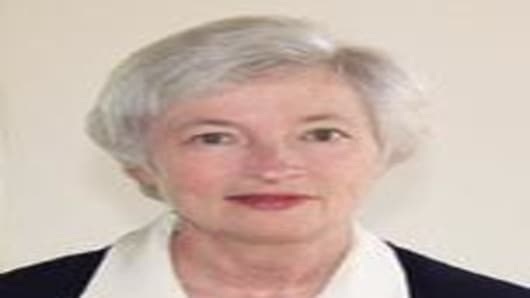San Francisco Federal Reserve Bank President Janet Yellen on Thursday indicated a willingness to cut U.S. interest rates further and said she was "not confident" a recession can be avoided this year.
Speaking to reporters after an event in Honolulu, Yellen said an extended spell of slow economic growth was the most likely outcome, but that a recession -- two quarters of negative growth -- was within the range of forecasting error.
"Current indicators point to continued anemic growth for at least the first half of this year," Yellen said on a panel discussion at the Chartered Financial Analysts of Hawaii economic forecasting dinner.
The Fed's job is to mitigate the downside economic risks that are now evident, which have made a recovery from the 2007 global credit crunch harder, she said.
A rolling series of financial shocks means that even with benchmark interest rates set by the Fed now much lower, market-based credit conditions are no more accommodative than they were a year ago, she said.
The current series of rate cuts is not "spiking the punchbowl," Yellen said, in response to a comment earlier on Thursday by Dallas Fed President Richard Fisher, who is worried about igniting higher inflation.
"I don't think it's fair to say 'spiking the punchbowl' when credit conditions at this point are not obviously, across the board, looser," she said.
Instead, there is a risk that the slowing economy will result in greater caution by lenders, households and businesses, creating a "negative feedback loop" that drags growth down even more, Yellen said, in her first speech on the economy since Dec. 3.
The Fed must be prepared to act in a timely manner, said Yellen, who is not a voting member of the policy-setting Federal Open Market Committee in 2008.
The FOMC has slashed its benchmark lending rate to 3 percent from 5.25 percent since mid-September as growth prospects have weakened. The cuts included a 75 basis point emergency inter-meeting move on Jan. 22.
Financial markets anticipate another rate cut of between 50 basis points and 75 basis points at the FOMC's March meeting. Talk of another inter-meeting cut has arisen in the face of recent weak economic data.
Yellen said the Fed's easing had pushed the real, or inflation-adjusted, federal funds rate to about 1 percent, "an accommodative posture."
The Fed's cuts have been appropriate, given the extent to which the financial market shocks and housing market downturn have restrained, and will likely continue to restrain, growth, she said.
"Forward-looking indicators of housing activity strongly suggest that the downward cycle may be with us a while longer," she said, adding that national housing construction probably will continue to contract through the end of 2008.
Consumers 'Hobbled'
Consumer spending accounts for about 70 percent of the U.S. economy, but the domestic consumer is "pretty hobbled" at the moment, she said.
"Consumers face additional constraints due to the declines in the stock market, the tightening of lending terms at depository institutions, and the lagged effects of previous increases in energy prices," she said.
"Slower job growth will have a negative impact on the disposable income available to households and therefore will provide an additional restraint on consumer spending."
Recent economic data also suggests the U.S. labor market is contracting in a way harmful to consumer spending, but "we don't yet have a dramatic deterioration," Yellen said.
Readings on inflation had been "disappointing," with core prices back above levels consistent with price stability, she added.
The core personal consumption expenditures (PCE) price index, which excludes volatile food and energy costs, increased by 2.2 percent in the year through December.
However, Yellen said, "I expect core inflation to moderate over the next few years, edging down to around 1.75 percent under appropriate monetary policy."
If the U.S. dollar can level off, the inflationary impetus that feeds through higher import costs should trail off as well, she said.


